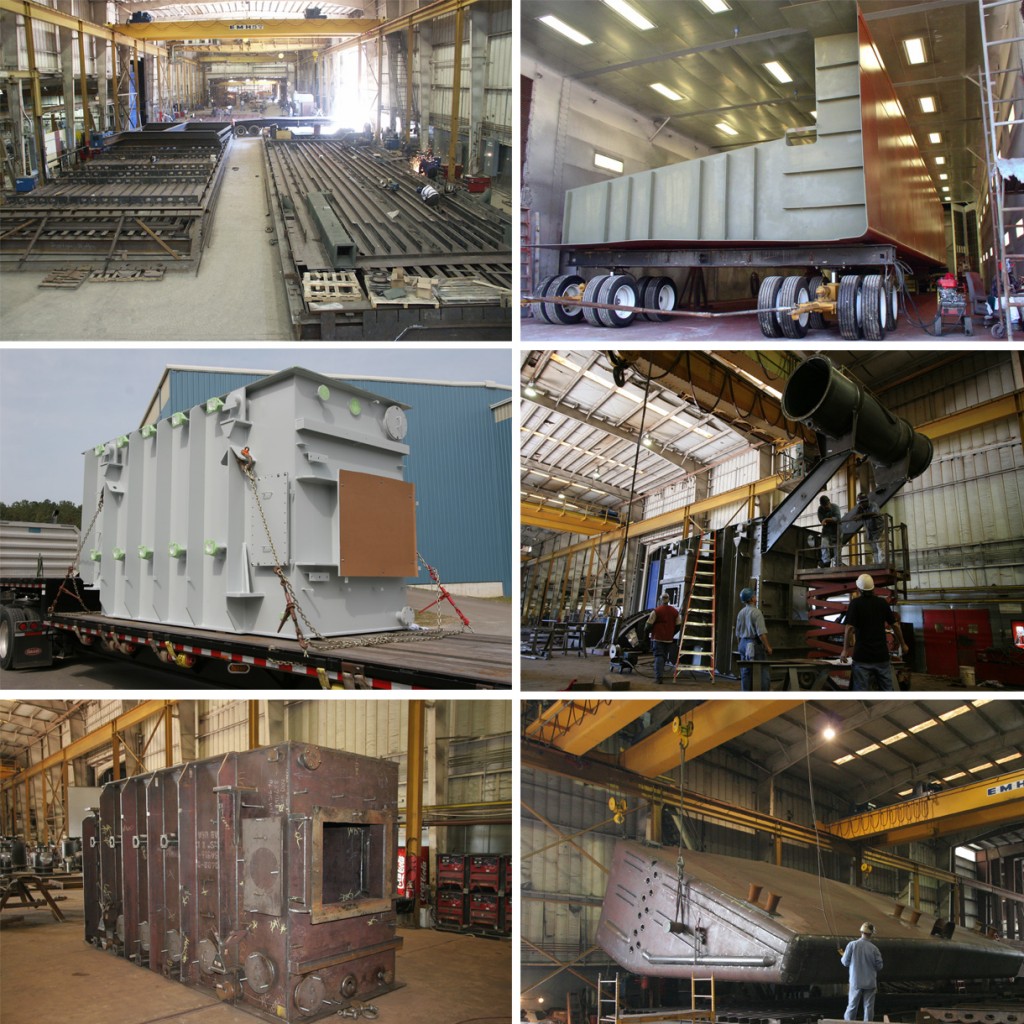Advanced Steel Fabrication Melbourne: Structure the Future Today
Advanced Steel Fabrication Melbourne: Structure the Future Today
Blog Article
The Ultimate Handbook on Customized Steel Fabrication Solutions for Structural Projects
In the realm of architectural tasks, the importance of custom-made steel manufacture remedies can not be overemphasized. From the fundamental understanding of steel fabrication basics to the elaborate process of choosing the most appropriate materials, every action in this trip plays a critical function in the ultimate success of a job.
Recognizing Custom-made Steel Fabrication Basics
Diving right into the principles of custom steel construction provides understanding right into the elaborate procedure of changing raw steel into customized structural elements. Customized steel fabrication is a specialized production technique that entails cutting, shaping, and assembling steel products to create unique frameworks according to particular task demands. Understanding the essentials of custom-made steel manufacture is essential for ensuring the successful execution of architectural tasks.
The procedure typically begins with the evaluation of task specifications and style needs. This first phase involves comprehensive preparation and collaboration between designers, designers, and makers to figure out one of the most appropriate method for producing the steel parts. Precision is vital during the manufacture process, as also small inconsistencies can impact the architectural stability of the last product.
Various methods, such as cutting, welding, and shaping, are utilized to transform raw steel right into the wanted architectural components. Skilled producers utilize innovative equipment and tools to ensure accuracy and consistency throughout the manufacture procedure. Quality control actions are carried out to confirm the honesty of the produced elements before they are assembled on-site, making certain compliance with sector requirements and task requirements.
Selecting the Right Steel Products

Firstly, the kind of architectural job and its particular requirements play a vital role in identifying the most appropriate steel products. Factors such as the load-bearing capacity, ecological conditions, and desired life expectancy of the framework will certainly determine the grade and kind of steel that should be made use of.
Additionally, the physical properties of the steel, including ductility, weldability, and toughness, need to straighten with the job's requirements to guarantee optimal performance and durability (steel fabrication melbourne). Furthermore, factors to consider such as deterioration resistance, cost-effectiveness, and accessibility of the steel products must likewise be taken right into account during the selection process
Layout Factors To Consider for Architectural Jobs
Architectural tasks require careful interest to design factors to consider to make certain both functionality and safety are focused on throughout the building and construction procedure. When it comes to creating architectural jobs, several essential variables have to be taken into account to ensure the success of the endeavor. By very carefully considering these elements during the design stage, architects and designers can make sure the structural task's success from perception to completion.
Improving Manufacture Procedures for Effectiveness

Furthermore, implementing lean production concepts can significantly improve performance in steel manufacture. By reducing waste, optimizing workflow, and improving communication in between different teams associated with the fabrication process, projects can be finished much more quickly and with greater quality criteria.
In addition, establishing an efficient production routine and operations can help in prioritizing tasks, designating resources effectively, and meeting project due dates immediately. By having a clear plan in position and consistently keeping track of development, any potential traffic jams or delays can be identified and resolved promptly, ensuring smooth and reliable fabrication procedures for structural jobs.
Quality Control and Task Monitoring in Steel Construction
To make sure the successful execution of steel fabrication projects, careful high quality control measures and reliable task monitoring methods are necessary parts in preserving accuracy and conference client assumptions. Quality control in steel manufacture includes strenuous assessments at different phases of the manufacture process to confirm conformity with job specs and sector standards. This consists of product screening, dimensional checks, and weld inspections to guarantee architectural honesty and security.
Job administration plays a critical function in coordinating the numerous elements of steel fabrication projects, such as organizing, resource allowance, and communication amongst team participants. A well-defined project strategy with clear goals, landmarks, and timelines helps to monitor progression and address any type of potential concerns proactively. Effective interaction in between all stakeholders, consisting of clients, contractors, fabricators, and engineers, is important for guaranteeing that the project progresses smoothly and fulfills the wanted quality criteria.
Final Thought
Finally, customized steel manufacture plays a vital function in structural tasks by providing customized services making use of the appropriate materials and design factors to consider. Effectiveness in manufacture processes, high quality control, and effective task monitoring are crucial for successful results. By recognizing the basics of custom-made steel manufacture and implementing structured procedures, project groups can deliver discover this info here resilient and high-quality structures that meet the details needs of their clients.
Custom-made steel manufacture is a specialized manufacturing strategy that includes cutting, shaping, and assembling steel products to create unique frameworks according to particular job demands.To guarantee the effective implementation of steel construction projects, precise high quality control procedures and reliable job monitoring techniques are necessary parts in preserving precision and meeting client expectations. Quality control in steel More about the author manufacture involves extensive assessments at numerous stages of the manufacture procedure to validate conformity with task requirements and sector criteria (steel fixing).Job monitoring plays a critical function in coordinating the various elements of steel construction tasks, such as scheduling, source allotment, and communication amongst team members.In conclusion, customized steel construction plays a crucial function in structural projects by supplying tailored options utilizing the appropriate products and style considerations
Report this page